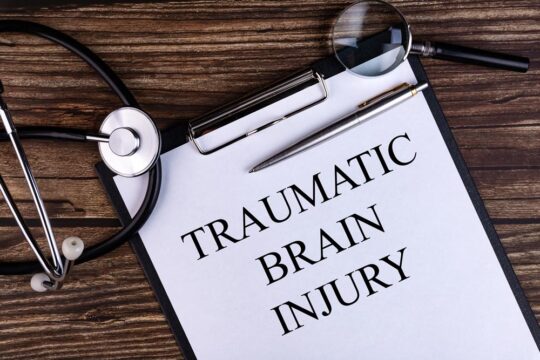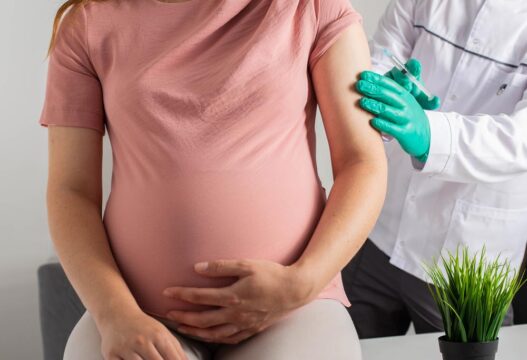Advertisment
What the papers say – weekly digest (03/11/23)

Your weekly digest of the top healthcare stories, covering news published from 30/10/2023 – 03/11/2023.
Daily Express
A target to open 160 cancer community diagnostic centres should be hit a year early, Steve Barclay has announced. The Health Secretary said all would be open by March. Some 127 already operate in areas such as shopping centres, football stadiums and university campuses. They have delivered five million tests and scans since July 2021. Thirteen of the centres will be led by the private sector. A further 22 will be on the NHS estate where the independent sector is providing diagnostic services.
Patients given the all-clear after tests for suspected cancer are more likely than the general population to then be diagnosed within five years, a study has discovered. There was no evidence cancer was missed but unhealthy lifestyles or family history may raise the chance of having an urgent referral and of a subsequent cancer risk. Lifestyle influences include poor diet, smoking and alcohol consumption. Three million patients have urgent referrals in England each year and 7% are found to have the disease. The study’s leader Professor Suzanne Scott, from Queen Mary University of London, said: ‘’Having cancer ruled out doesn’t lessen the future risk. Patients and GPs should remain vigilant.’’
The doctor behind a Bill that could see the first place in the British Isles come a step closer to legalising assisted dying said he is ‘’cautiously optimistic’’ a vote tomorrow will go through. Dr Alex Allinson acknowledged that while it is a sensitive issue, he believes there is a ‘’far larger’’ number of people interested in helping those facing difficult deaths to take control than those opposed to a change in the law. The GP, who is also the Isle of Man government’s treasury minister, said he is confident the island’s parliament has the time to ‘’craft the right Bill’’ which he said could see assisted dying services offered as soon as 2025 on the Island.
Police in the capital will reduce the number of mental health calls they attend from today (Wednesday). Met Police officers will not need to be present if a healthcare professional is more appropriate, as part of the joining Right Care, Right Person scheme with the NHS. They will also call a helpline before detaining under the Mental Health Act – saving around 14 shift hours per case. The scheme will allow police to ‘’deal more effectively with community crime-fighting’’, the Met said. Police will still attend call-outs if someone is at risk of serious harm.
Nearly two thirds of women worry about sexual harassment or intimidation when exercising outside on darker evenings, according to a survey. The findings come as female runners gathered last night in central London as part of a campaign to draw attention to challenges they face. The Censuswide poll last month of 1,000 women in the UK for the This Girl Can campaign found almost half (48%) said they do not like to get active outdoors after dark and 46% change their routine or habits as a direct result. Six in ten were concerned about sexual harassment or intimidation.
Daily Telegraph
Two thirds of patients enduring long waits in A&E are over 60, official data shows, prompting warnings of age discrimination. The analysis by the Royal College of Emergency Medicine shows the longest waiting times are for the oldest and most vulnerable patients – with those in their 90s facing the worst delays. Its president today raised fears that such patients will be put at risk by ‘’dangerous’’ levels of pressure on casualty departments this winter, accusing health chiefs of a ‘’massive failure’’ to shore up services to cope with risking demand. Too often the NHS was making its patients sicker, he said. While over 60s represented 29 per cent of A&E attendees in England last year, they made up 63 per cent of those stuck on trolleys for at least 12 hours. In total, more than one million people aged 60 and over waited more than 12 hours in A&E in 2022, the figures show. By December, almost half of those aged 90 and over who went to A&E endured such waits.
Gaining too much weight during pregnancy raises the risk of heart disease in later life, a study has shown. Women who were underweight before conception and piled on more than the recommended pounds during pregnancy had an 84 per cent higher risk of contracting heart disease, according to a US study. Those who were an average size before pregnancy and gained extra weight had a 20 per cent increased risk of heart problems and the chances increased by 12 per cent for those considered obese before motherhood. The research, published in The Lancet, analysed more than 50 years of data involving 45,000 participants.
Working nights makes you hungrier, new research has suggested. The University of Bristol- led investigation examined how the misalignment of the body clock alters the brain’s regulation of hormones that control appetite. The experiment found those in a ‘’jet lagged’’ group consumed nearly five times more food than a control group, illustrating how when normal bodily rhythms are disrupted that can also disrupt normal appetite regulation. Dr Becky Conway-Campbell, a research fellow at Bristol Medical School, said: ‘’For people working throughout the night, a reversed body clock can play havoc with their health.’’
Being scared to death while watching The Shining or the Exorcist might be a good thing for your health, experts have suggested. Psychologists have claimed that horror films may actually benefit well-being as they promote stress and pain relief through the release of endorphins and dopamine, the reward hormone. Dr Kristen Knowles, a neuropsychologist at Queen Margaret University in Edinburgh, told The Herald: ‘’Researchers have found that watching horror can improve pain tolerance due to endorphin production. Distraction from pain is also a likely explanation, since attention and energy resources are diverted towards threat evaluation and away from other bodily functions.’’ Endorphins are the body’s way of making us feel pleasure and reward, and are produced by the brain when eating and exercising, for example. They are also produced when the body feels pain or stress, such as when watching a ‘’jump-scare’’ in a horror movie, as a method to help survival by blocking pain receptors.
Boris Johnson told scientists he was in favour of a Swedish-style approach to the pandemic, rather than more lockdowns, in autumn 2020, an Oxford epidemiologist has told the Covid Inquiry. As the inquiry prepares to hear from Mr Johnson’s closest advisers this week, evidence from Prof Sunetra Gupta suggested that the former prime minister was persuaded by a Swedish expert that lockdowns could be avoided by implementing less restrictive rules. Mr Johnson was reported to have said in September 2020 that he would rather let coronavirus ‘’rip’’ than introduce a second lockdown because of the economic impact. However, a second lockdown was introduced in November 2020 and a third in January 2021.
The Guardian
Fasting diets are better for weight loss than simply trying to cut calories, according to a study in patients with type 2 diabetes. Limiting the ‘’eating window’’ to an eight-hour period between 12pm and 8pm helped people to lose nearly 4 per cent of their body weight over a six-month period. However, patients who were told to cut their daily calories by 25 per cent did not see any significant weight loss. Experts said ‘’counting time is easier than counting calories’’. And people find it harder to stick to diets if they are allowed to eat at all times of the day. The six-month trial by US researchers involved 75 obese patients with diabetes who were divided into three groups: intermittent fasting, calorie reduction and a control group. The study published in JAMA, is the largest trial to date looking at whether intermittent fasting is an effective option for patients with type 2 diabetes. Five million Britons have diabetes which occurs when a person’s blood sugar becomes chronically high as the body stops producing or responding to the hormone insulin. Nine in ten cases are type 2 and this can cause complications including heart disease, stroke, eye problems and kidney failure.
Public services are crumbling and risk getting stuck in a perpetual state of crisis, a leading think tank has said. In its annual report on the state of public services, the Institute for Government (IfG) said they were performing worse than before the pandemic and much worse than when the Conservatives came to power in 2010.Funding cuts, a lack of capital investment and disruption caused by strikes have all contributed to the decline, the IfG said. Its report claimed that the government’s refusal to negotiate on public sector pay for months had extended the duration of strikes and brought more disruption. The report predicted that children’s social care will be performing worse in 2027/28 than on the eve of the pandemic. The hospital elective waiting list has risen to 7.8 million, compared with 4.6 million before the pandemic, while only just over half of those attending A&E are admitted, transferred or discharged within four hours, the report said. Other services such as adult social care have seen additional funding eaten up by higher costs, which the IfG said meant there had been ‘’little progress in reducing unmet and under-met need.’’
Tens of thousands more care home beds need to be provided within the next decade to accommodate Britain’s ageing population. With the number of people aged over 80 in the UK forecast to rise by a million to 4.5 million by 2032, research from Savills has found that because of the significant undersupply, an additional 144,000 care home beds will be required to meet demand. Caryn Donahue, head of senior housing transactions at Savills, said that although 14,500 care home beds had been delivered since 2020, with a further 30,000 in the development pipeline, there was still a ‘’stark shortfall’’, with seven people aged 80 years of age or over per care home bed. Nearly half of those 14,500 beds already delivered are located in the south of the country, in London and the southeast. Only 15 per cent were built in northern England.
Adding salt to your meals increases the risk of getting type 2 diabetes, new research suggests. It has long been known that salty diets raise blood pressure and are bad for your heart, but this is the first study to show a link with diabetes. Scientists at Tulane University in the US, looked at data from 400,000 adults in the UK Biobank who were questioned about their salt intake and how often they seasoned their meals with salt at the table. Over a follow-up period of more than a decade, 13,000 of the participants developed type 2 diabetes. Compared with those who never or rarely used salt, people who added it to every meal had a 39 per cent higher risk of developing type 2 diabetes. Meanwhile those who ‘’sometimes’’ or ‘’usually’’ added salt had a 13 per cent and 20 per cent higher risk, respectively.
The successful launch of a breakthrough respiratory vaccine by GSK has prompted the FTSE 100 company to raise its financial forecasts. Britain’s second biggest pharmaceuticals group said that Arexvy, the world’s first vaccine for respiratory syncytial virus for older adults, was on track to be a blockbuster, generating sales of at least $1 billion, in its first year on the market after it secured approval in the United States in May. The vaccine aims to prevent lower respiratory tract disease caused by respiratory syncytial virus, which until now had been one of the few leading infectious illnesses without such a jab. The common contagious virus affects the lungs and breathing passages.
The Times
Millions of patients have now been handed the power to view their own medical records and test results online after the NHS overruled opposition from the doctors’ union. From today (Wednesday) every GP surgery in England witll be contractually obliged to give all patients over the age of 16 access to their health information on their phones. Patients will no longer have to ring up their surgery or book a GP appointment to get details of blood test results, medications and repeat prescriptions. Instead they can log in to the NHS app, which will store doctors’ notes from previous appointments and be automatically updated as new information such as test results arrive. Granting patients access to their own medical records is central to NHS plans for ‘’digital-first’’ primary care, aiming to free up 15 million appointments over the next two years. Six in ten GP surgeries – about 4,000 in total – have already adopted the scheme. The rest have had to introduce it as of Wednesday, when it became a contractual requirement. The British Medical Association had threatened to go to court over the plans, arguing that granting people access to their records would add to GP workloads and could put patients at risk, but abandoned the plans due to financial and legal reasons.
Young people feel they will only get treatment from NHS mental health service if they attempt suicide multiple times, the former children’s commissioner has said. Anne Longfield, who stepped down in 2021, said the present generation of children had become experts in mental health services and were aware that NHS infrastructure was ‘’buckling and far from being able to cope’’. NHS statistics show that one in six children aged seven to 16 have a probable mental health disorder, up from one in nine before the pandemic. This has led to long waiting lists for specialist NHS services, which see 700,000 young people a year.
Rates of dementia could increase because lockdown caused a rapid deterioration in the brain health of over-50s, research shows. Scientists warned that disruption caused by the Covid pandemic has had a ‘’real lasting impact’’ on memory function among older generations in the UK, speeding up brain ageing.Short-term memory declined 50 per cent more rapidly during the first year of lockdown than in the year before, partly because people stopped exercising and drank more alcohol. The study, led by the University of Exeter and King’s College London, involved 3,000 adults aged between 50 and 90 who had not been diagnosed with dementia. They are all taking part in a 25-year study called Protect, which involves regular memory and brain tests to assess their risk of dementia.
Boris Johnson said that the pandemic was ‘’nature’s way of dealing with old people’’, the Covid inquiry was told yesterday as his former aide laid bare the chaos and toxic in-fighting at the heart of government. Dominic Cummings said that ‘’pretty much everyone’’ referred to the former prime minister as ‘’the trolley’’ because he routinely changed his position. He said he had repeatedly called for Johnson to sack Matt Hancock, the health secretary, accusing him of being ‘’unfit for the job’’ and suggesting that he was ‘’killing people’’ through a combination of lies and incompetence. Sir Patrick Vallance, the chief scientific adviser, said that Johnson became ‘’obsessed with older people accepting their fate and letting the young get on with life’’ as he argued against a second lockdown. Johnson was said to have repeatedly downplayed the risk of the virus at the start of the pandemic. In messages from early March 2020, Cummings said that Johnson ‘’doesn’t think it’s a big deal’’ and that Covid would ‘’be like swine flu’’. Some of Cummings’s most aggressive messages concerned Hancock, whom he accused of ‘’sowing chaos’’ with inaccurate advice. In May 2020 he wrote that Hancock was unfit to be health secretary because of ‘’the incompetence, the constant lies’’, claiming that ‘’his uselessness is still killing God knows how many’’. Hancock is expected to vigorously reject Cummings’s claims when he gives evidence to the Covid inquiry next month.
Pfizer has fallen to its first quarterly loss since 2019 as demand for its Covid vaccine and treatment wanes. The US drug company confirmed a $5.6 billion one-off charge after recently agreeing for the US government to return millions of doses of Paxlovid, its antiviral treatment, and inventory write-offs for Comirnaty, the vaccine. The successful launch of the vaccine in partnership with BioNTech of Germany at the height of the pandemic and the development of Paxlovid had previously helped to drive record sales at Pfizer, topping $100 billion last year. However, vaccine rates and demand have slumped as the pandemic fades and shares in Pfizer have dropped by about 40 per cent this year.





